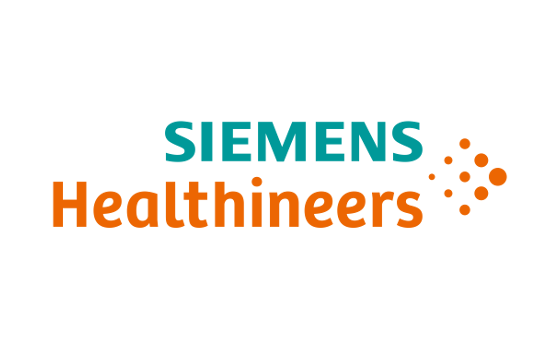 Siemens Healthineers is joining forces with more than 20 industry and public partners, including seven leading stroke hospitals, to improve stroke management for patients all over Europe. With a total volume of €26.9 million, the five-year UMBRELLA(1) project is partly funded by the Innovative Health Initiative (IHI), a public-private partnership for health research and innovation between the European Union and Europe's life science industries, and partly by the industry partners participating in the consortium. It is co-led by Vall d'Hebron Research Institute (Barcelona, Spain) and Siemens Healthineers, which is the largest industry contributor with an investment of €6,7 million, and includes hospitals in in Belgium, Germany, Italy, the Netherlands, Spain and Switzerland. Key to the project are two developments from Siemens Healthineers. The first one, a novel stroke connectivity platform(2), is designed to bridge gaps along the acute stroke pathway and to digitalize patient data points. Secondly, a federated data and learning platform(2) will enable researchers to create and validate algorithms on a large number of datasets in a secure way.
Siemens Healthineers is joining forces with more than 20 industry and public partners, including seven leading stroke hospitals, to improve stroke management for patients all over Europe. With a total volume of €26.9 million, the five-year UMBRELLA(1) project is partly funded by the Innovative Health Initiative (IHI), a public-private partnership for health research and innovation between the European Union and Europe's life science industries, and partly by the industry partners participating in the consortium. It is co-led by Vall d'Hebron Research Institute (Barcelona, Spain) and Siemens Healthineers, which is the largest industry contributor with an investment of €6,7 million, and includes hospitals in in Belgium, Germany, Italy, the Netherlands, Spain and Switzerland. Key to the project are two developments from Siemens Healthineers. The first one, a novel stroke connectivity platform(2), is designed to bridge gaps along the acute stroke pathway and to digitalize patient data points. Secondly, a federated data and learning platform(2) will enable researchers to create and validate algorithms on a large number of datasets in a secure way.
In the EU alone, approximately 460,000 people die of stroke every year. And around 10 million stroke survivors are living with the consequences - making stroke a leading cause of disability in Europe.(3) The overall incidence continues to rise due to an ageing population and increasing exposure to risk factors such as obesity or diabetes. UMBRELLA aims to improve and standardize stroke management protocols, validate them across participating clinical centers, and implement them in the European guidelines for the benefit of all stroke patients. In addition, the project will focus on creating and validating AI-supported algorithms based on real-world data for improved diagnosis, reduced time-to-treatment and to prevent long-term damage.
"UMBRELLA is a remarkable example of how technology and collaboration can improve patient outcomes boosted by cutting-edge technologies. This is critical to addressing major unmet health needs," said Peter Schardt, chief technology officer of Siemens Healthineers. "Partnerships like this foster the European innovation ecosystem and provide a significant opportunity to achieve results that would not be possible for any single organization working alone."
Carsten Bertram, head of Advanced Therapies at Siemens Healthineers, adds: "Together with leading clinical partners, we want to optimize stroke treatment and limit recurrence through digitalization and advanced imaging. This project is an important milestone towards our mission to lower the global burden of stroke." UMBRELLA will be able to utilize a novel stroke connectivity platform(2) by Siemens Healthineers to facilitate communication and help break down existing data silos. These exist today between paramedics and primary and comprehensive stroke hospitals, causing treatment delays for acute stroke patients. The platform will bridge gaps along the pathway and allow for streamlined communication and a smooth exchange of information, such as patient demographics, vital signs, stroke scale results or computed tomography (CT) images. It will also enable digitalization of a combination of patient data points that are not kept in stroke registries today.
The federated data and learning platform(2) on the other hand will help toestablish data repositories with harmonized real-world data from the participating hospitals. A communal learning infrastructure will be utilized for UMBRELLA to allow for decentralized training and validation of AI-based algorithms on the federated data. This avoids the exchange of actual patient data amongst partners, fulfilling regional data compliance requirements. The platform will enable researchers to formulate clinical hypotheses, create and validate algorithms on a large number of harmonized pan-European datasets, e.g. for fast and precise stroke diagnosis, personalized treatment strategies or outcome and recurrence prediction.
About Siemens Healthineers
Siemens Healthineers pioneers breakthroughs in healthcare. For everyone. Everywhere. Sustainably. The company is a global provider of healthcare equipment, solutions and services, with activities in more than 180 countries and direct representation in more than 70. The group comprises Siemens Healthineers AG, listed as SHL in Frankfurt, Germany, and its subsidiaries. As a leading medical technology company, Siemens Healthineers is committed to improving access to healthcare for underserved communities worldwide and is striving to overcome the most threatening diseases. The company is principally active in the areas of imaging, diagnostics, cancer care and minimally invasive therapies, augmented by digital technology and artificial intelligence. In fiscal 2023, which ended on September 30, 2023, Siemens Healthineers had approximately 71,000 employees worldwide and generated revenue of around €21.7 billion.
1. UMBRELLA stands for Unleashing a CoMprehensive, Holistic and Patient Centric Stroke Management for a Better, Rapid, AdvancEd and PersonaLised Stroke Diagnosis, TreAtment and Outcome Prediction. This project is supported by the Innovative Health Initiative Joint Undertaking (IHI JU) under grant agreement No 101172825. The JU receives support from the European Union’s Horizon Europe research and innovation programme and COCIR, EFPIA, Europa Bío, MedTech Europe, and Vaccines Europe.
2. Both the Connectivity platform and the Federated data and learning platform are under development and not commercially available. Their future availability cannot be ensured.
3. https://www.ncbi.nlm.nih.gov/pmc/articles/PMC7382540/ (accessed on September 24, 2024)